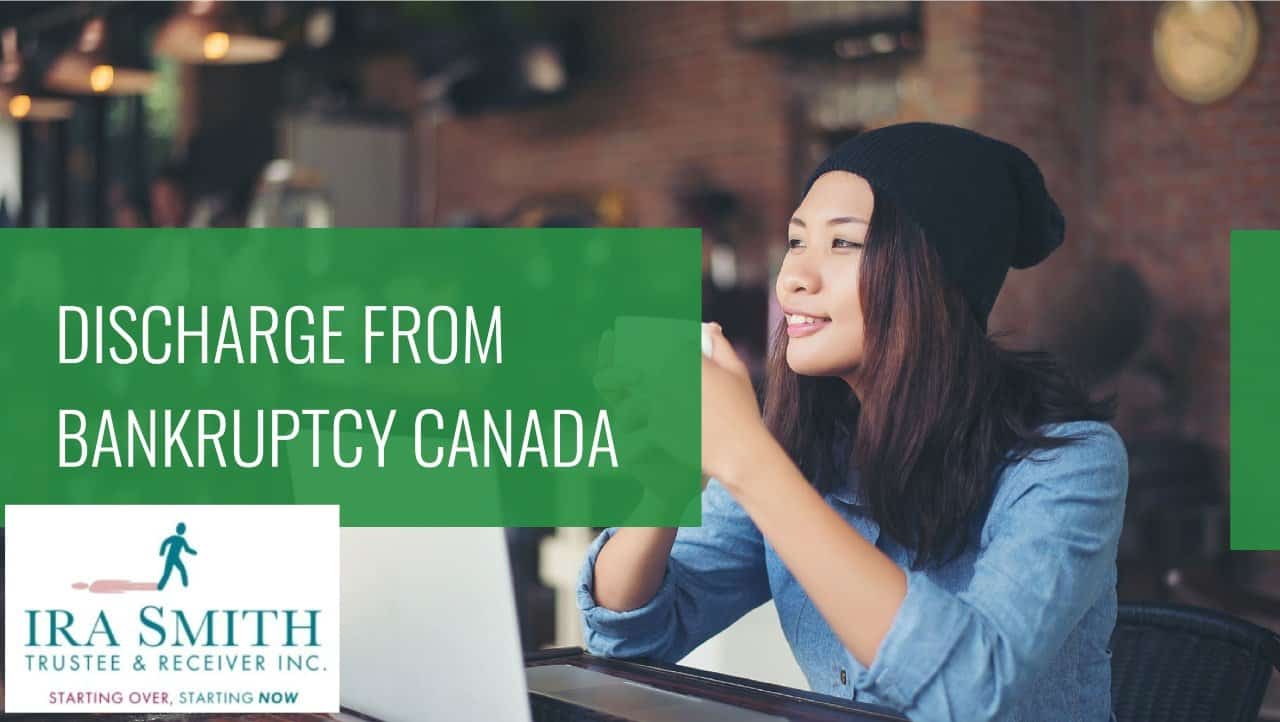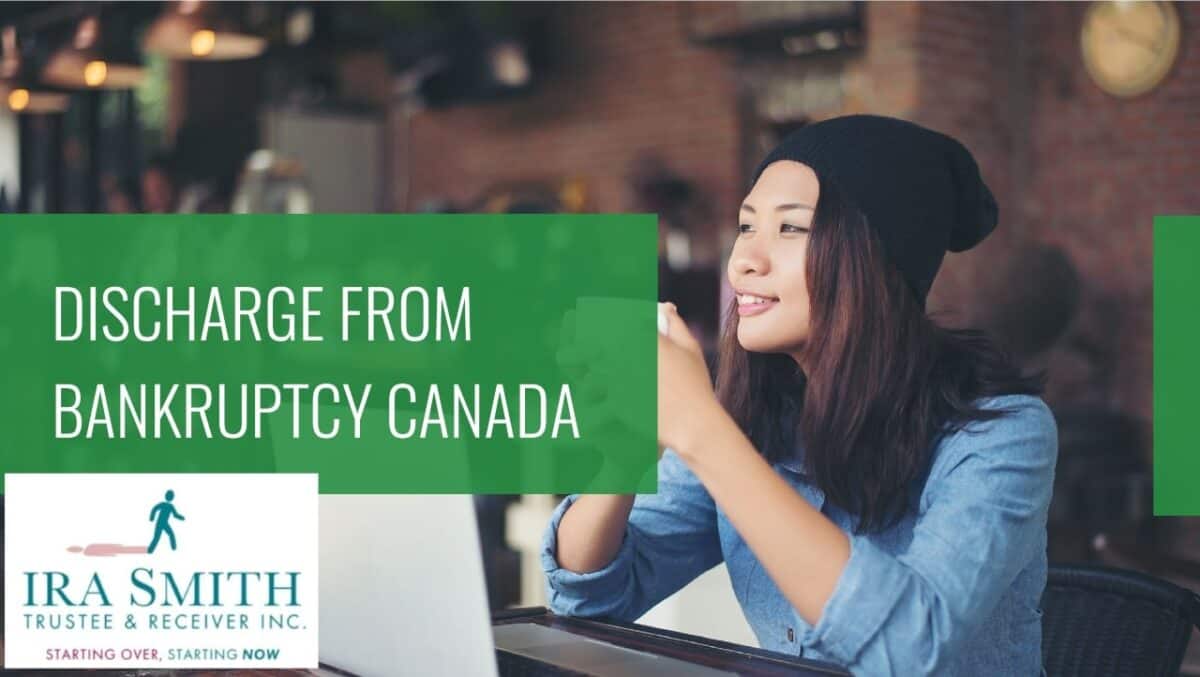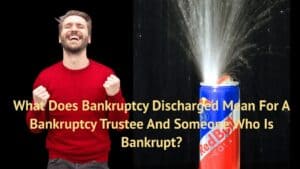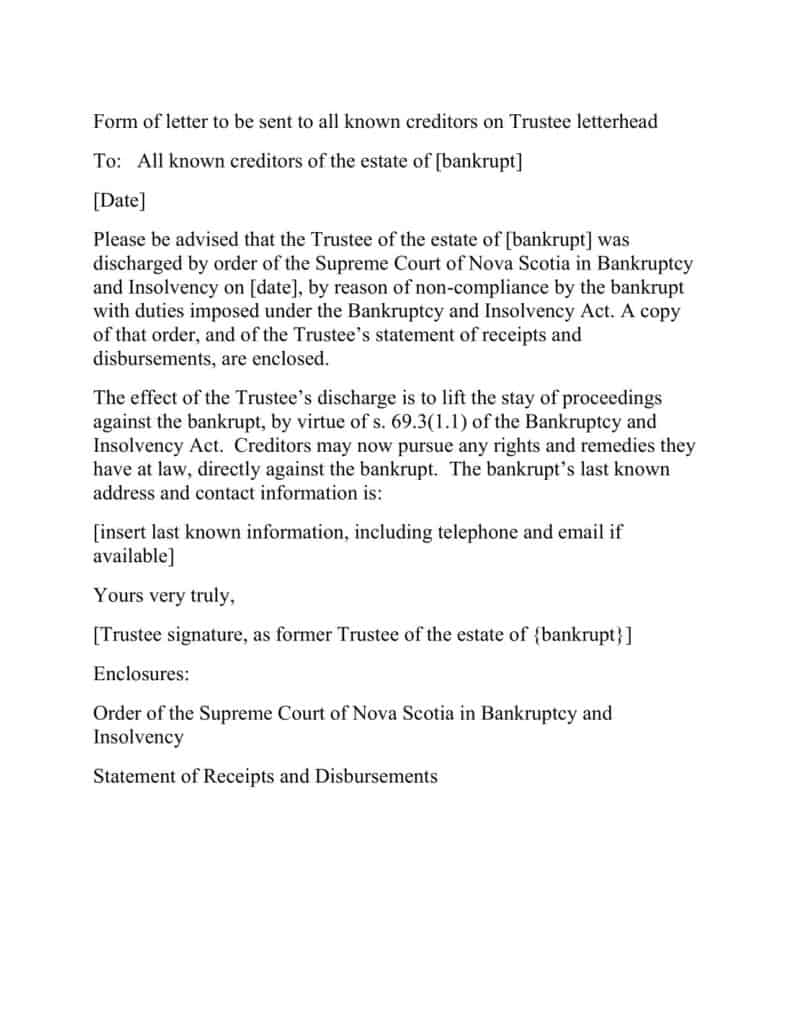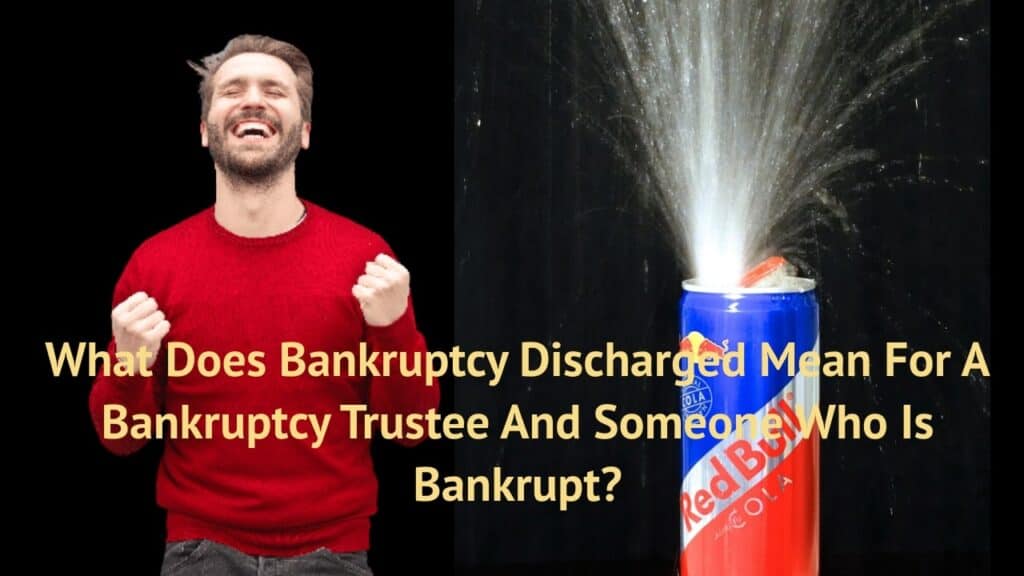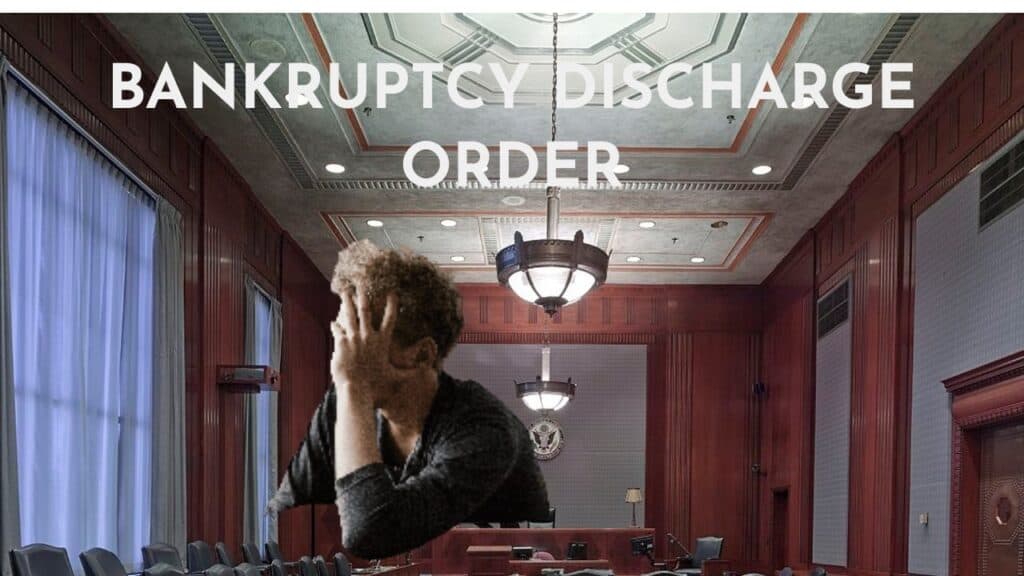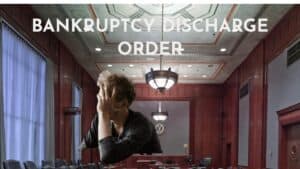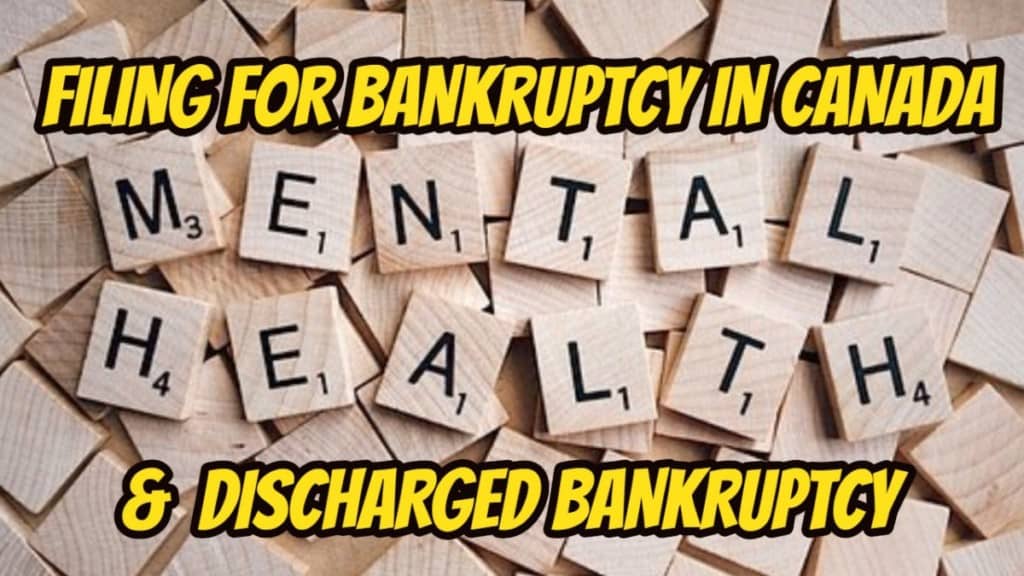What are the implications of discharge from bankruptcy Canada?
If you are experiencing financial troubles and can’t pay your debts, you can file for bankruptcy in Canada. This legal process lets you off the hook for your debts and start fresh. Once you’re discharged from bankruptcy, you’re no longer responsible for those debts (other than for a few exceptions noted below). Filing for bankruptcy is stressful. We understand how difficult and stressful the bankruptcy process can be, so we hope that this will be a helpful resource for you.
Once the Trustee has completed their duties under the Bankruptcy and Insolvency Act (Canada) with respect to the administration of your property and the bankruptcy estate, the next step in the bankruptcy process is they must apply for a discharge. This will occur after the Trustee has applied for your discharge from bankruptcy Canada, even if you did not get an absolute discharge.
This Brandon’s Blog is for people who have made a bankruptcy filing but have not yet been discharged. If your Licensed Insolvency Trustee has been discharged or is otherwise unable to help you with a second discharge application, this blog will provide you with the information you need to get through the process on your own.
Discharge from bankruptcy Canada: What are the implications if you are not discharged from bankruptcy?
If your previous application for discharge was unsuccessful, you remain an undischarged bankrupt and your Trustee is not obliged to make another application on your behalf. However, you should check with your Trustee first as they may or may not be prepared to do so.
We often receive calls from individuals who claim that their Trustee has been discharged, but they have not been. They express confusion as to why their Licensed Insolvency Trustee will not make an application for their discharge from bankruptcy. A quick search reveals that in these cases, the individual received a conditional discharge, but has not yet fulfilled all of their conditions to get a bankruptcy discharge. That is why their conditional discharge has not yet been converted into an absolute discharge.
If you filed an assignment in bankruptcy and are still an undischarged bankrupt, you may be able to apply for discharge from bankruptcy. An insolvency Trustee only needs to make one application on your behalf. Once the Trustee obtains their discharge, they do not need to make your application for discharge on your behalf again.
The Licensed Trustee cannot be discharged until all bankruptcy administration requirements have been met, including making the first discharge application on behalf of the bankrupt person.
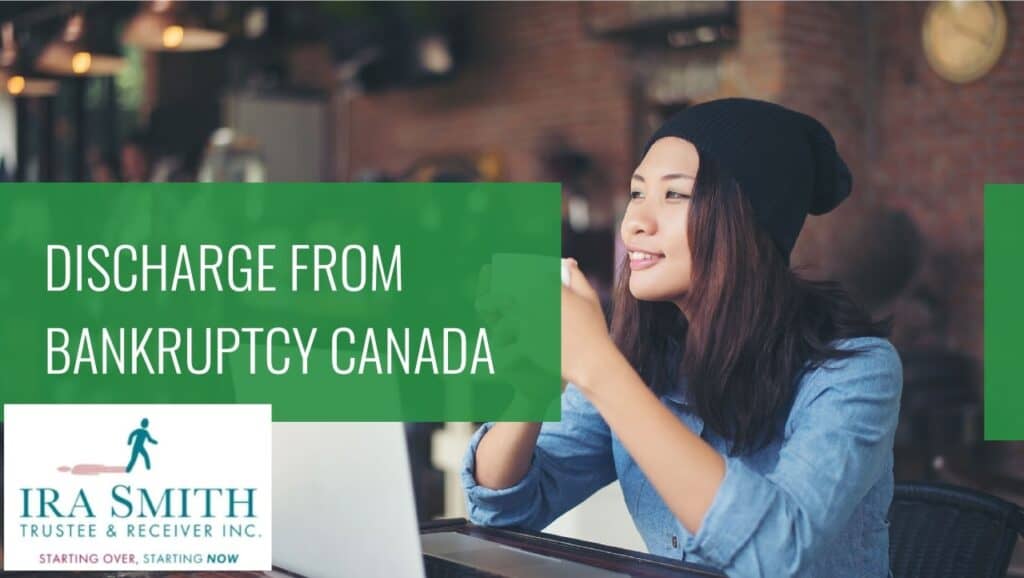
Discharge from bankruptcy Canada: How do you obtain a bankruptcy discharge in Canada?
Automatic discharge from bankruptcy is typically granted unless there are exceptional circumstances. If there is opposition to the automatic discharge, the discharge application must be brought before the court for a hearing.
If you did not complete all of your bankruptcy duties as the bankrupt person, such as providing income and expense statements, attending required financial counselling sessions, and/or paying surplus income, your Trustee had reasons to oppose your automatic discharge and scheduled a hearing with the court.
The Report of Trustee on Bankrupt’s Application for Discharge sets out the reasons for the insolvency Trustee’s opposition to a bankrupt’s application for discharge. This document is on file with the court.
If a bankrupt does not receive a discharge at the time of the court application, it is usually because they have not yet done what is required. The associate justice/registrar who heard the application at court may have therefore adjourned the application (i.e. stated it was to be heard at a later date, which may or may not have been set).
The court may have adjourned your discharge application or imposed conditions that must be met before you are entitled to a discharge. The disposition sheet from the hearing will state what the court decided in this regard.
Discharge from bankruptcy Canada: What are the steps to clear my bankruptcy?
It’s not unusual for people who didn’t do what they were supposed to at first to try and get back on track and do what’s required to get their discharge. You must comply with your duties during bankruptcy to the best of your ability and be prepared to explain to the court any deficiency in doing so.
For example, to get your discharge, you must be able to provide details and evidence of your income and expenses during bankruptcy. You probably recall that you were required to provide the Trustee with your monthly income and expense reports. If you’re unable to provide the court with those details, the court may want to review your income tax returns for that period. If you want the court to rescind or vary the conditions imposed, you must show that you complied with the conditions to the best of your ability.
There are many examples of trying your best to meet the conditions but maybe not perfectly. If the court orders you to pay a certain sum of money to the Trustee by a certain date, you can make the court-ordered additional payment but not by the specified date. If you were required to make surplus income monthly payments but didn’t make them all, that’s one reason there were conditions attached to your discharge. You can apply to the court to change the date and get your discharge.
Another one is that you didn’t finish all your required credit counselling sessions. You could finish them and then provide proof of completion to the court.

Completing your own application for discharge from bankruptcy Canada
Making your own application to be discharged from bankruptcy can be a bit daunting, but don’t worry—just follow a few simple steps and you’ll be all set. Here are some tips to help you get your application ready and submitted without the help of a bankruptcy trustee or a bankruptcy lawyer.
To begin, you’ll want to locate your bankruptcy file at the court office. Once you have your file, be sure to look through it thoroughly to find:
- your bankruptcy court file number;
- the Report of Trustee on the Bankrupt’s Application for Discharge under section 170 of the BIA;
- any order issued by the bankruptcy court at the original discharge hearing; and
- the court’s disposition sheet from any previous discharge hearing identifies what the court previously ordered or decided.
You will need copies of these documents. You can ask the court office to make copies for you. They will charge you a fee for photocopying. You should check the Report of the Trustee, the court’s disposition sheet, and any court order to see what you failed to do and what conditions the court has imposed. Also, it is not a bad idea to find out who attended your last application for discharge.
You should check the Report of the Trustee, the court’s disposition sheet, and any court order(s) in the file to see what you didn’t do and what conditions (if any) the court has imposed. Lastly, you need to schedule a date for your discharge hearing with the bankruptcy court.
You will be required to prepare the following documents and file them with the court:
- a notice of hearing for a bankrupt person’s application for discharge;
- your affidavit explaining why you believe you are entitled to the discharge order sought;
- an affidavit of service; and
- a draft of the order sought.
The Associate Justice/Registrar in Bankruptcy hearing your application for discharge may make any order he or she sees fit. If the order you are seeking is made, he or she may accept and sign it in court on the day you appear, which may save you a period of time later on.
Requisition – Notice of hearing for bankrupt’s discharge from bankruptcy Canada hearing for discharge
The first step in obtaining a discharge in bankruptcy is to file a Notice of Hearing for Bankrupt’s Application for Discharge with the court. That document would have first been filed by the Trustee when the Application for discharge is first scheduled. If you have a copy of it, it will be a good precedent for you to follow.
A requisition must be filed again by you in order to have the matter brought back before the court.

Discharge from bankruptcy Canada:The Affidavit
An affidavit is a formal, written statement that provides key information in your legal case. Any evidence you want the court to consider in your application must be submitted in an affidavit. Your affidavit should describe the events leading up to your bankruptcy, and your current financial situation.
You must swear or affirm your affidavit before a notary public or commissioner of oaths. Make sure that your affidavit only includes evidence that is relevant to your application for discharge.
The court is familiar with a standard form of affidavit for discharge applications. You should familiarize yourself with that normal format. You should also include:
- additional information about why you did not seek a bankruptcy discharge earlier;
- is this a 1st-time bankruptcy, 2nd-time bankruptcy or more;
- why you have not been able to comply with the bankrupt’s duties or the requirements of an earlier court order; and
- state the reasons you are wanting to be discharged now.
You will need to attach any relevant documents to your affidavit in support of your application, including a statement of your current income, expenses, assets, liabilities and any previous bankruptcy information.
Discharge from bankruptcy Canada:Affidavit of Service
To serve documents, you must provide a written copy to the party to be served. You need to obtain a signature or other confirmation, such as an email, to confirm that the document was properly served. You will need to serve the filed Requisition and all filed Affidavits and documents on:
- any creditor filed an opposition to your discharge;
- creditors who attended an earlier discharge hearing;
- your Licensed Insolvency Trustee; and
- Office of the Superintendent in Bankruptcy.
These parties may attend your hearing and make submissions.
In order to provide proper service within the required time period before your discharge hearing, you must familiarize yourself with the rules. You must also provide proof of service at the hearing, especially if no one else attends. This proof of service can be the signature of everyone served to show the date they were served.
An Affidavit of Service can also be filed with the court. This Affidavit of Service is separate from the Affidavit filed with the court regarding your reasons for entitlement to anabsolute bankruptcy discharge certificate.

At the discharge from bankruptcy Canada hearing
When you appear in court for your discharge hearing, you will be able to present your case to either an Associate Justice or Registrar in Bankruptcy. If your application is being opposed, the creditors opposing your discharge need to file a notice of opposition. In this case, the hearing will be in front of a bankruptcy Judge. This is the normal process followed:
- You explain why you believe you are entitled to the order you are seeking, for example, an absolute discharge from bankruptcy.
- Anyone opposing your application explains his or her position.
- The Judge or Registrar may ask questions relating to the affidavits and documents you have filed and make suggestions or give directions.
When presenting your position at the hearing, remember to:
- Clearly state what order you are seeking from the Registrar in Bankruptcy or Judge.
- Outline the facts supporting your application in a concise manner.
- Explain the law on the subject and how it applies to the facts of your case.
Your conduct before and during bankruptcy will be taken into consideration when making a decision on your application for discharge. The Trustee’s report will provide information on your conduct before and during bankruptcy, which will be taken into account. if you did not attend the required financial counselling
sessions, did not file required statements of income and expense, and/or did not make the required surplus income payments to the Trustee for the benefit of your creditors.
The court will consider the relevant factors and make the appropriate order, or it may adjourn the hearing for further information or conditions to be met. Some of the types of orders the court may make are:
- An order of discharge that is absolute and therefore you are immediately discharged from bankruptcy.
- A conditional discharge may be granted. Examples of conditions are:
- if the debtor pays any unpaid surplus income,
- the debtor pays the outstanding balance for any asset that was agreed to be paid for; or
- if the debtor pays a sum of money to the Trustee toward their debt obligations, as decided by the court.
- A discharge that has been suspended.
- The court may refuse to issue a discharge order if it is not satisfied that you have made full and adequate disclosure, or if there are issues with your conduct.
Discharge from bankruptcy Canada: Order for discharge
The Judge or Registrar in Bankruptcy will grant a discharge order at the end of the hearing. The type of discharge will be one of the kinds indicated above. If you prepared a draft order and the Registrar in Bankruptcy or Judge finds it acceptable, they will sign it and you can then have it filed with the court. However, if your application was opposed, keep in mind that one of the opposing parties may choose to appeal the discharge order.
If you have not prepared your order before the hearing, you should do so after the hearing and submit the order in duplicate to the court. The court office will then send the order to the Registrar in Bankruptcy or Judge who heard your application for signing. Once you receive your copy of the signed order, your discharge will be official.
When you receive a copy of the signed order, you must provide a copy to the Office of the Superintendent of Bankruptcy. They will in turn notify the credit bureaus and Canada Revenue Agency of your discharge.
When you have received your absolute discharge, you are no longer legally responsible for repaying debts that you incurred before your assignment in bankruptcy. You will get rid of debt with some exceptions set out in Section 178 of the Bankruptcy and Insolvency Act. They are:
- payment of child support or alimony;
- student loans, if you have not been a full-time or part-time student for less than 7 years;
- a fine or penalty imposed by the court; or
- debt resulting from fraud.

discharge from bankruptcy canada
Discharge from bankruptcy Canada: Are you tired of being in debt?
Bankruptcy law and the bankruptcy process can be complex, so it may be worth retaining a bankruptcy lawyer to help you apply for your discharge. Ultimately, it is up to you, but hopefully, this guide to discharge from bankruptcy Canada will lay out the steps you need to take if you wish to apply for a discharge yourself.
I hope that you found this discharge from bankruptcy Canada Brandon’s Blog informative. If you’re sick and tired of carrying the burden of debt and ready to live a much better life, we can assist. We know exactly how it really feels to be in debt as well as feel like you’re never going to get ahead. We have actually helped lots of people and businesses that were in your position reach financial stability, so we understand it’s feasible for you to prosper in your objective of ending up being debt-free. Nevertheless, it will certainly require some work on your part. We’ll be right here to assist you with every action necessary.
The financial restructuring process is complex. The Ira Smith Team understands how to do a complex restructuring. However, more importantly, we understand the needs of the entrepreneur or the person who has too many personal unsecured debts, Credit card debt, income tax debt liability, unsecured loans or personal obligations from the running of your company or from being a business owner. These are all types of debt we can help you eliminate. We are aware of your financial difficulties and understand your concerns. Filing bankruptcy is the last option we explore only after we have exhausted all other options to avoid bankruptcy, such as financial restructuring through a debt repayment plan.
It is not your fault that you are in this situation. You have been only shown the old ways that do not work anymore. The Ira Smith Team uses new modern ways to give you the best management advice to get you out of your outstanding debt troubles while avoiding bankruptcy. We can get you debt relief freedom.
The stress placed upon you is huge. We understand your pain points. We are sympathetic to the financial difficulties you are experiencing and would like to help alleviate your concerns. We want to lighten your load by coming up with a debt settlement plan crafted just for you.
We realize that people and businesses in financial difficulty need practical advice and a workable solution in an easy-to-understand financial plan. The Ira Smith Team knows that not everyone has to file for bankruptcy in Canada. Most of our clients never do, as we are familiar with alternatives to bankruptcy. We assist many people in finding the relief they need.
Call or email us. We would be happy to give you a no-cost initial consultation. We can find you the perfect solution to tailor a new debt restructuring procedure specifically for you, based on your unique economic situation and needs. We provide a full range of services to people and companies. If any of this sounds familiar to you and you’re serious about finding a solution, let us know. We will get you back to living a happy life, whether or not there is an economic recession in Canada.
Call us now for a no-cost initial consultation. We are licensed professionals.
